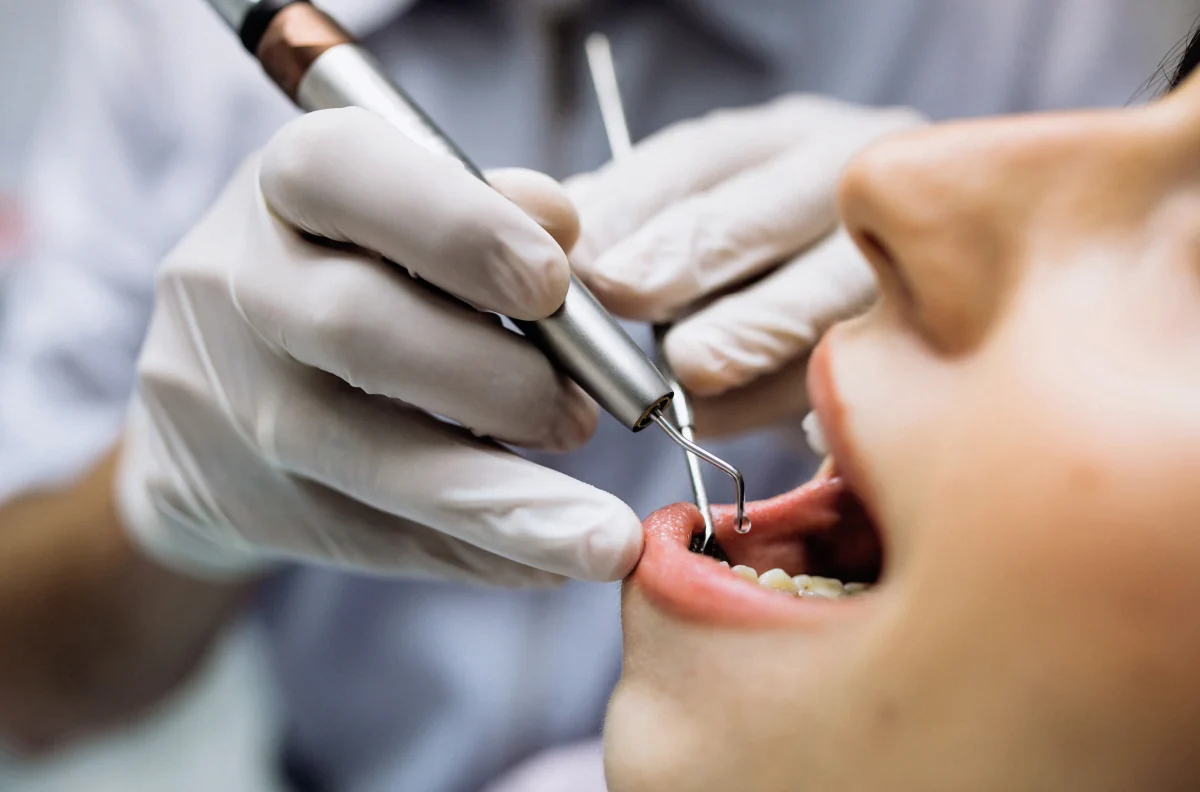- DEPARTMENT
- MEDICAL ONCOLOGY
- SURGICAL ONCOLOGY
- NEPHROLOGY
- UROLOGY
- MEDICAL GASTROENTEROLOGY
- SURGICAL GASTROENTEROLOGY
- NEUROLOGY
- NEURO SURGERY
- PEDIATRIC SURGERY
- PLASTIC SURGERY
- CARDIOLOGY
- GENERAL SURGERY
- ORTHOPEDICS
- OBSTETRICS & GYNECOLOGY
- GENERAL MEDICINE
- PEDIATRICS
- PULMONOLOGY
- DERMATOLOGY
- ENT
- MAXILLOFACIAL SURGEON
- DENTAL SCIENCES
- ANAESTHESIA & CRITICAL CARE
- EMERGENCY MEDICINE & TRAUMA
- PAIN MANAGEMENT
- PATHOLOGY
- PHYSIOTHERAPY
DENTAL SCIENCES

Dr. Sifali Ivvala
BDS,DENTAL SURGEON
Dentistry is a branch of medicine focused on the diagnosis, prevention, and treatment of diseases and conditions affecting the oral cavity, teeth, gums, and related structures. Dentists, also known as dental surgeons, play a crucial role in promoting oral health, restoring dental function, and enhancing aesthetic appearance through a variety of preventive, restorative, and cosmetic dental procedures. In this comprehensive guide, we will delve into the diverse field of dentistry, examining its history, importance, specialties, techniques, and innovations shaping modern dental practice.
Historical Evolution
Ancient Origins
The history of dentistry dates back to ancient civilizations, where rudimentary dental practices were documented in various cultures worldwide. Archaeological evidence suggests that early humans used primitive tools, such as sharpened flint stones and bone instruments, to address dental ailments, including tooth decay, infections, and dental trauma. Ancient civilizations such as the Egyptians, Greeks, Romans, and Chinese developed early forms of toothpaste, mouth rinses, and dental prosthetics made from materials like ivory, gold, and animal teeth.
Early Dental Treatments
In ancient Greece, Hippocrates and other medical practitioners recognized the importance of oral hygiene and oral health in overall well-being, advocating for tooth cleaning, diet modification, and herbal remedies to prevent dental diseases. Ancient Roman physicians such as Aulus Cornelius Celsus described dental extractions, dental hygiene practices, and treatment of dental abscesses in their medical writings, laying the groundwork for early dental treatments and oral surgery techniques.
Importance of Oral Health
Oral-Systemic Health Connection
Oral health is integral to overall health and well-being, with emerging evidence highlighting the bidirectional relationship between oral health and systemic health. Poor oral hygiene, untreated dental diseases, and oral infections have been linked to an increased risk of systemic conditions such as cardiovascular disease, diabetes, respiratory infections, preterm birth, and certain cancers. Conversely, systemic conditions such as diabetes, immunodeficiency disorders, and autoimmune diseases can impact oral health and increase susceptibility to dental diseases, emphasizing the importance of comprehensive oral care and interdisciplinary collaboration between dental and medical professionals.
Prevention of Dental Diseases
Preventive dentistry plays a critical role in maintaining oral health and preventing dental diseases through patient education, oral hygiene instruction, dietary counseling, fluoride therapy, and dental sealants. Regular dental check-ups, professional cleanings, and oral examinations enable early detection and intervention of dental problems, including dental caries (cavities), periodontal disease (gum disease), oral cancer, and temporomandibular joint disorders (TMJ). Community-based oral health programs, school-based sealant programs, and public health initiatives aim to promote oral health awareness, reduce disparities, and improve access to dental care for underserved populations.
Restorative and Aesthetic Dentistry
Restorative dentistry encompasses various dental procedures aimed at repairing or replacing damaged or missing teeth to restore oral function, aesthetics, and health. Common restorative treatments include dental fillings, crowns, bridges, implants, dentures, and root canal therapy, tailored to the individual needs and preferences of patients. Cosmetic dentistry focuses on enhancing the appearance of the smile through elective procedures such as teeth whitening, veneers, bonding, and orthodontic treatments, improving self-confidence and quality of life for patients seeking aesthetic enhancements.
Specialties in Dentistry
Orthodontics
Orthodontics is a dental specialty focused on the diagnosis, prevention, and correction of malocclusions (misaligned teeth and jaws) and dentofacial abnormalities. Orthodontists utilize braces, aligners, retainers, and other orthodontic appliances to straighten teeth, align jaws, and improve occlusion, bite function, and facial aesthetics. Orthodontic treatment can address various conditions such as crowding, spacing, overbites, underbites, crossbites, and open bites, enhancing oral health, speech, and facial symmetry.
Periodontics
Periodontics is a dental specialty dedicated to the prevention, diagnosis, and treatment of periodontal diseases, including gingivitis and periodontitis, which affect the gums and supporting structures of the teeth. Periodontists specialize in scaling and root planing (deep cleaning), periodontal surgery, gum grafting, bone regeneration, and dental implant placement to manage periodontal infections, reduce inflammation, and restore periodontal health. Periodontal therapy aims to preserve natural teeth, stabilize periodontal tissues, and prevent tooth loss in patients with gum disease.
Endodontics
Endodontics is a dental specialty concerned with the diagnosis and treatment of diseases and injuries affecting the dental pulp and root canal system of the teeth. Endodontists perform root canal therapy, apicoectomy (root-end surgery), and dental trauma management to alleviate tooth pain, remove infected or damaged pulp tissue, and preserve the natural dentition. Endodontic procedures involve the disinfection, shaping, and obturation of root canals to eliminate infection, promote healing, and maintain tooth vitality.
Oral and Maxillofacial Surgery
Oral and maxillofacial surgery is a surgical specialty that encompasses the diagnosis, surgical treatment, and management of diseases, injuries, and defects involving the oral cavity, jaws, face, and neck. Oral surgeons perform a wide range of procedures, including tooth extractions, dental implant placement, jaw surgery (orthognathic surgery), TMJ surgery, facial trauma repair, corrective jaw surgery, cleft lip and palate repair, and oral pathology management. Oral and maxillofacial surgeons collaborate with other dental specialists, medical professionals, and interdisciplinary teams to provide comprehensive care for complex oral and facial conditions.
Pediatric Dentistry
Pediatric dentistry, also known as pedodontics, is a dental specialty focused on the oral health care of infants, children, adolescents, and individuals with special healthcare needs. Pediatric dentists specialize in preventive care, dental education, behavior management, and treatment of dental problems affecting pediatric patients, including dental caries, developmental anomalies, malocclusions, and oral habits.
